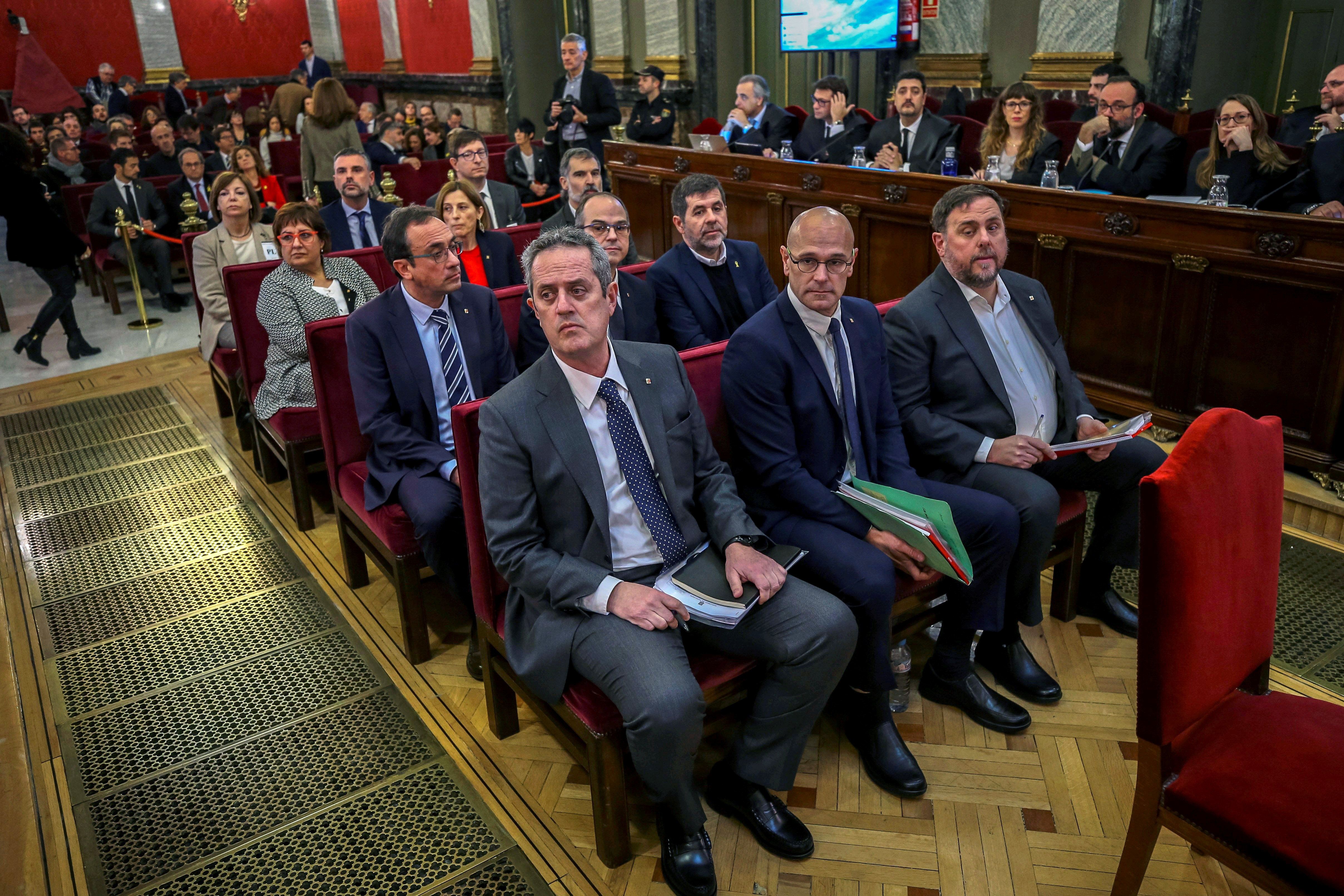A high-stakes political trial in Spain threatens to reignite national tensions and topple the government.
The "trial of the century," which began in Madrid yesterday, pits twelve members of the separatist movement in the Spanish region of Catalonia against the national government. The defendants are accused of rebellion, sedition, and civil disobedience for organizing what Madrid alleges was an illegal referendum on independence from Spain back in 2017. They face up to 25 years in prison.
Catalonians who participated overwhelmingly backed independence in the referendum, sparking Spain's worst national crisis since its return to democracy in the late 1970s. It was only resolved after then-Prime Minister Mariano Rajoy dissolved Catalonia's parliament and nationalized its regional police force.
What's at stake? The trial is already opening old wounds. Thousands took to the streets in Madrid on Tuesday to protest what they view as the government's soft stance on the separatists. New protests across are all but certain, and will further stoke political divisions throughout Spain. Only 22 percent of Catalans believe their leaders committed acts of rebellion, compared to 58 percent of all Spaniards. The contrast with Spain's conservatives is even starker: where 87 and 95 percent of supporters of the center-right Partido Popular and far-right Vox Party, respectively, felt similarly.
The court drama also spells trouble for current Prime Minister Pedro Sanchez, who was just barely able to form a government last year by coaxing the support of two small pro-independence Catalan parties. By refusing to negotiate on regional self-determination, Sanchez's government is likely to lose their support and be defeated in a crucial vote today on its 2019 budget. That could prompt new elections within the next few months.
All the instability is good for the new kids in Spanish politics – the far-right Vox party. As we've written, Vox made big gains in recent local elections and has made a point of wanting to quash calls for Catalan independence. Polls suggest the party would win over 10 percent of the national vote if elections were held today, giving them their first seats in Parliament.
With mounting protests, a delicate coalition, and the far-right on the rise, Spain's government could soon be the latest in Europe to be swept aside.
